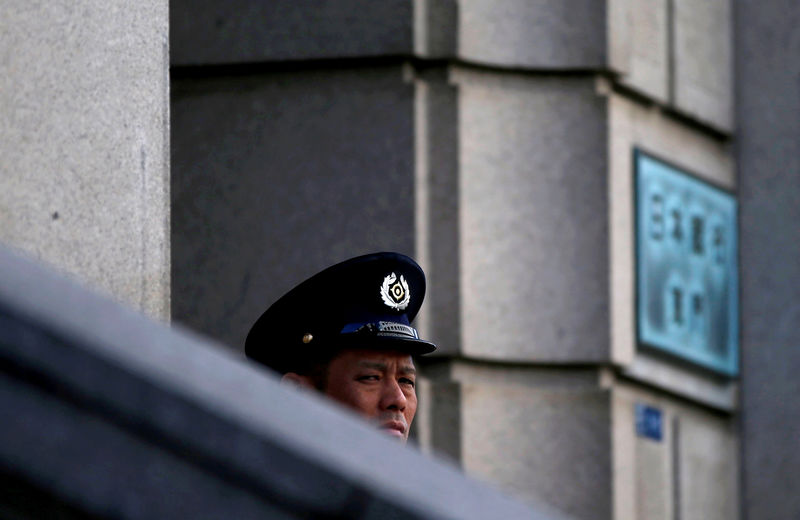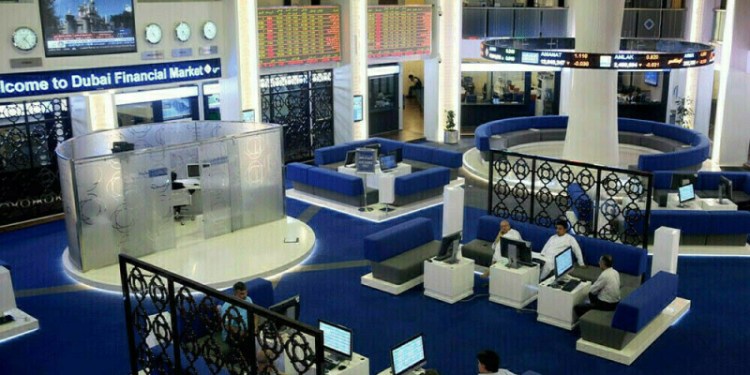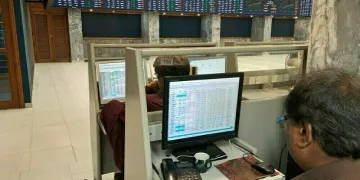 © Reuters. FILE PHOTO: A security guard stands at the Bank of Japan building in Tokyo
© Reuters. FILE PHOTO: A security guard stands at the Bank of Japan building in TokyoTOKYO (Reuters) – Some Bank of Japan board members have called for a debate about raising interest rates or lowering purchases of exchange-traded funds in response to the improving outlook, a summary of opinions expressed at last week’s policy meeting showed.
If the outlook for prices and the economy is expected to improve the BOJ will need to consider whether “adjustments in the level of interest rates will be necessary,” one board member said.
Another board member said the BOJ should examine the policy effects and the possible side effects of ETF purchases from “every angle” because of rising stock prices and earnings.
Japan’s growth this year has exceeded some economists’ expectations, and its stock markets have rallied due to rising corporate earnings, causing some traders to question whether the BOJ should rein in its aggressive monetary easing.
“Consumer spending is doing well, supported by rising stock markets. The BOJ’s policy focus is on interest rates, so it is only natural to question its purchases of risk assets,” said Hiroshi Miyazaki, senior economist at Mitsubishi UFJ Morgan Stanley (NYSE:) Securities.
The summary of opinions does not identify individual speakers, and it is unclear whether a majority of the BOJ’s nine-person board shares these views.
Governor Haruhiko Kuroda also said clearly last week that as long as consumer prices remain distant from the BOJ’s 2 percent inflation target he does not want to raise rates.
The BOJ board’s comments were published against a background of solid economic growth and robust industrial production.
Japan’s industrial output rose a more-than-expected 0.6 percent in November, and retail sales rose 2.2 percent in November from a year earlier, more than the median forecast for a 1.2 percent increase, government data showed on Thursday.
Fusion Media or anyone involved with Fusion Media will not accept any liability for loss or damage as a result of reliance on the information including data, quotes, charts and buy/sell signals contained within this website. Please be fully informed regarding the risks and costs associated with trading the financial markets, it is one of the riskiest investment forms possible.
Source: Investing.com
























